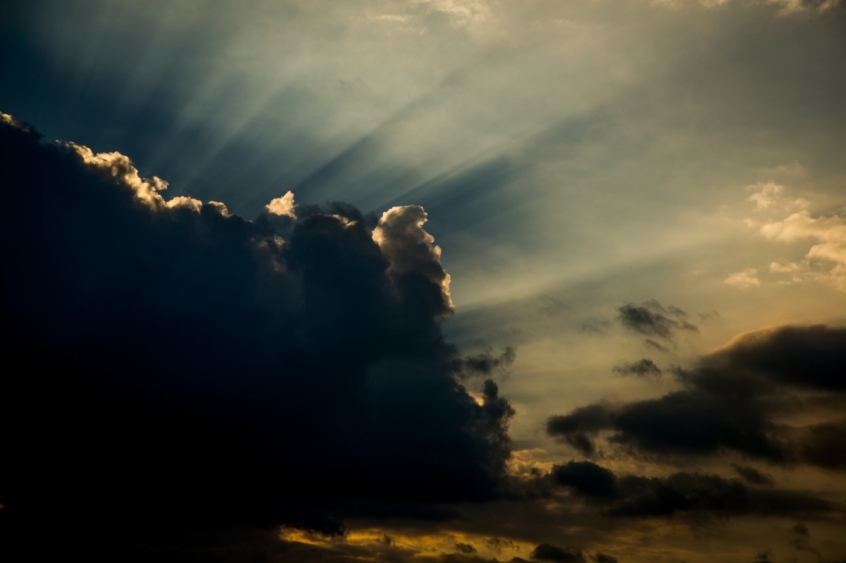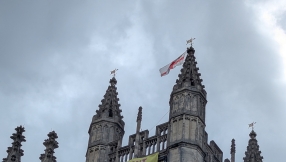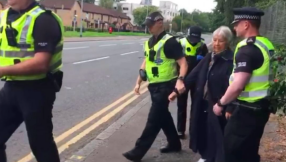Following the news these days often feels upsetting and disorientating. Daily reports of political upheavals, scandals, disasters and conflicts can seem overwhelming, and leave us feeling powerless.
This is true on climate change as much as on many other issues. In recent weeks, we have seen reports highlighting increases in emissions of climate-changing greenhouse gasses, the impact that climate change is already having on human health, and the scale of the challenge facing us if we want to care for creation, God's gift to us.
Looking back over 2017, we recall news of devastating hurricanes, heatwaves, wildfires and other extreme weather events filling our newspapers and our screens. There are also hidden impacts, which sadly do not regularly make the news. They often fall on the poorest communities on Earth, and the most vulnerable people within those communities – the elderly, the infirm, the children.
The quiet, insidious effects of droughts, for example, have in recent years wiped out crops that could have fed millions, leaving more that 800 million people worldwide feeling the effects of hunger.
It is and always has been a sad irony that the people who did least to cause the problem are first in line to suffer the effects.
In the differential coverage of events, we also see profound injustice in how our perceptions of the world are shaped. The hurricanes in the US made headlines; but floods in south Asia this summer did not, despite affecting over 40 million people and leaving 1.8 million children unable to go to school.
In recent months, fellow Anglican bishops from around the world have told us what climate change means to them. Archbishop George Takeli of Melanesia, described it as a threat to the very existence of communities in the South Pacific island nations his province covers, with cyclones, sea-level rise and effects on soil all serious concerns.
Likewise, my colleague Dr Thabo Makgoba, Archbishop of Cape Town, highlighted the need to 'make the linkage between social justice and climate justice'.
The words of Archbishop Takeli, were particularly poignant. A Pacific nation, Fiji chairs this year's climate change conference, which began on Monday in Bonn. Low-lying Pacific islands are among the poorest countries on Earth already, and now face an existential threat although they produce a miniscule percentage of the world's greenhouse gas emissions.
Hope remains
But does that mean we should add climate change guilt to the list of things we feel when we watch the news?
I would argue that it does not. I would rather focus on hope. When we face difficult problems honestly and well, our hope is renewed. Although climate change can seem like the most intractable of issues, there are many signs of progress.
In the UK, our carbon emissions have fallen by two-fifths since their peak, and we have maintained the financial assistance to poorer nations that we first pledged back in 1992. The same is true in our towns and villages. A few weeks, the Green Church Awards celebrated achievements of churches from Shildon in County Durham to tiny St Wenn's in Cornwall.
Ahead lies the two-year anniversary of the Paris Agreement on climate change – a ground-breaking and almost unprecedented expression of the determination of the nations of the world to prevent the worst impacts of climate change from becoming reality.
The announcement by Donald Trump that he intended to pull the USA out of the Paris Agreement sent shockwaves around the world. Some were fearful that this could lead to a ripple effect of other countries also announcing their withdrawal, but in fact the opposite has been the case. Country after country, along with cities, states, regions, businesses, faith and civil society groups and many others have all firmly reiterated their support for the Agreement. Countries which agree on very little have united to protect our planet from catastrophic climate change. Large and rapidly developing nations, like China and India, are developing new renewables capacity at a blistering pace and stopping the expansion of coal and oil.

The response from our government has been to publish its Clean Growth Strategy which embraces the reality that academics have known for years – economic growth is now accelerated by going green, not slowed down.
In Bonn, almost the entire human race is working together. Two of the last three countries yet to join the Paris agreement, Syria and Nicaragua, have announced they will join. Representatives of the world's biggest countries sit alongside those from the tiniest states. To see environmentalists alongside bankers and businesspeople, faith leaders and scientists, doctors and the military, young and old, together in a common cause, is a truly wonderful thing to witness.
So, despite all the worrying news we see, despite the actions of a handful of reckless naysayers including the US President, despite even the scale of the task facing us, I still feel hope when we consider the enormous challenge of climate change. The urgent commitment of people around the world will help us overcome this threat, and by doing so build a safer, cleaner and more tolerant world for our children and grandchildren.
And we pray. Every year, in September and early October, Christians of all traditions come together to pray for our common home in what is beginning to be known as the Season of Creation – Anglican, Roman Catholic, Protestant and Orthodox. Many Christians around the world also fast for the climate on the first day of each month – fasting to petition God and earthly powers failing to rule according to his will has enormous biblical precendent. You can find out more at www.prayandfastfortheclimate.org.uk.
But we must keep calling for action and committing ourselves to the cause. Life is too precious, the Earth too wonderful and the demand to act for environmental justice too strong for us to remain silent.
Nicholas Holtam is the Bishop of Salisbury and the Church of England's lead bishop on the environment.













